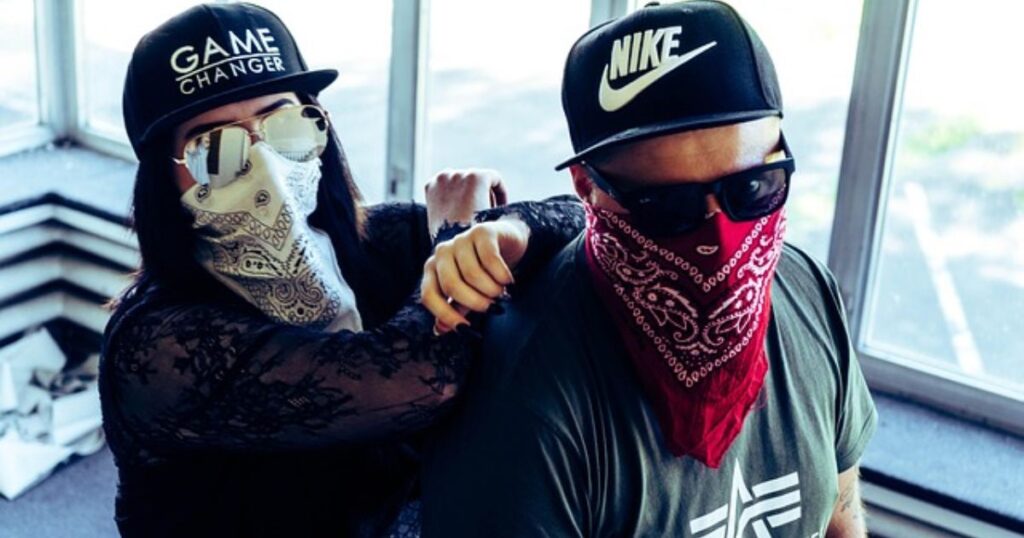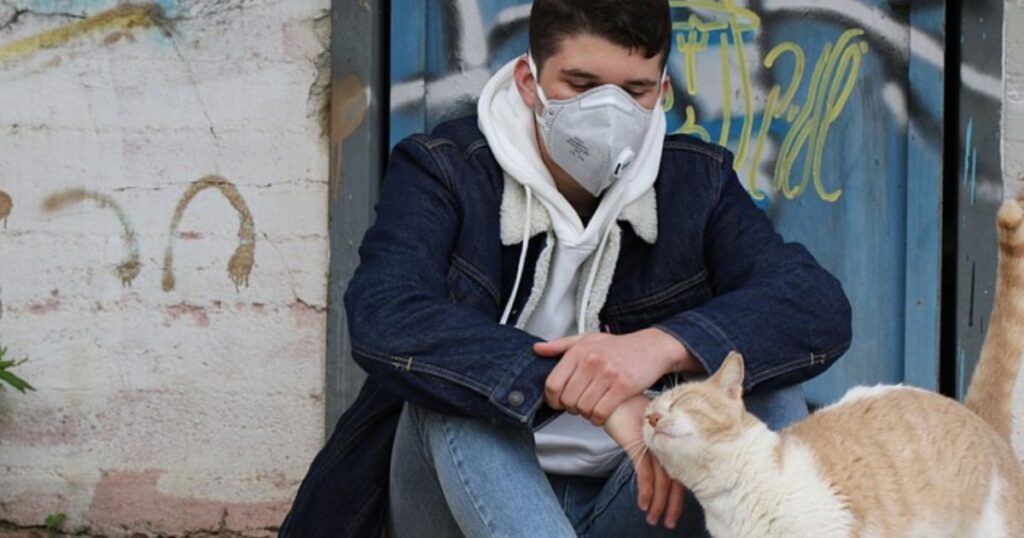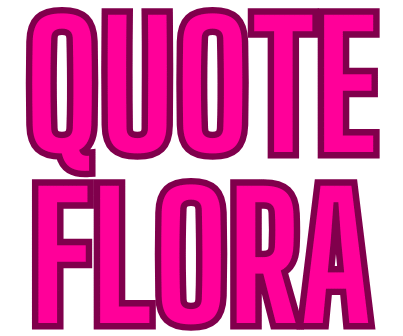It’s never easy figuring out how to tell a guy you just want to be friends, especially when you care about his feelings and don’t want to hurt him. Maybe you’ve noticed he’s starting to catch feelings, or perhaps he’s already confessed how he feels. You don’t want things to get awkward, but pretending nothing’s changed doesn’t feel right either. It’s that tricky mix of guilt, confusion, and the hope that honesty won’t ruin everything.
This post will walk you through exactly how to handle the situation with honesty and kindness. You’ll learn when and how to have the conversation, what to say (and what to avoid), and how to stay true to yourself while still respecting his emotions. By the end, you’ll know how to set boundaries clearly without making things uncomfortable or losing a meaningful friendship.
Why It is Important to Be Honest

- Honesty isn’t about being harsh; it’s about being real in a world that often hides behind polite lies.
- When you’re honest, you give someone the gift of clarity instead of confusion.
- Telling the truth may feel uncomfortable, but it’s the only way to build something that lasts.
- Honesty doesn’t break bonds, it prevents fragile ones from pretending to be strong.
- It takes courage to be honest, especially when silence would be easier.
- Being honest doesn’t mean being cruel; it means choosing respect over pretense.
- The kindest truth will always do less damage than the sweetest lie.
- Honesty is the bridge that keeps friendships standing when emotions get complicated.
- When you’re honest, you give both hearts a fair chance to heal and grow.
- You can’t build genuine connections on unspoken words or half-truths.
- Being truthful doesn’t push people away, it attracts those meant to stay.
- Sometimes, the hardest truths are the ones that free you the most.
- Honesty may sting for a moment, but dishonesty lingers like a wound that never heals.
- When you speak your truth kindly, you protect both your peace and theirs.
- Real friendship starts when both people stop pretending and start being honest.
When to Have the Conversation

Timing is everything when you’re facing a delicate truth. Knowing when to speak can make the difference between clarity and confusion, peace and heartbreak. Let’s explore how to choose the right moment to say what needs to be said.
Choose Privacy
- Private words carry more honesty when spoken in a safe, quiet space.
- Real feelings deserve real moments not the noise of a crowd.
- A private conversation gives room for understanding, not embarrassment.
- When you speak heart-to-heart, even the hardest truths land softly.
- Privacy isn’t secrecy, it’s respect for emotions too personal for an audience.
- You can’t speak freely when eyes are watching; honesty needs peace to breathe.
- The quiet of a private space helps truth sound like care, not rejection.
- Some conversations are too human to happen under bright lights.
- If the moment feels intimate and calm, your message will feel kind, not cold.
- When honesty matters most, silence around you can be your best ally.
Avoid Emotional Highs and Lows
- Truth told in anger sounds like blame; truth told in calm sounds like care.
- Timing your honesty during peace makes it easier to be heard.
- Don’t let emotions speak for you, let clarity do the talking.
- A calm heart delivers the message better than a heavy one.
- When feelings are steady, understanding flows naturally.
- Never mix honesty with heated emotions; it burns the bridge instead of building it.
- Even the right words fall flat when the timing feels wrong.
- Calm moments carry compassion better than chaotic ones.
- Let the storm pass before you share what’s in your heart.
- The best time for honesty is when both hearts can truly listen.
Be Prompt but Thoughtful
- The longer you wait, the heavier the silence becomes.
- Don’t delay the truth out of guilt, it only deepens the confusion.
- Honesty loses its strength when you hold it back for too long.
- Waiting too long to speak can make friendship harder to save.
- The right time isn’t when it’s easy, it’s when it’s necessary.
- You don’t need perfect timing, just genuine intention.
- Sometimes clarity can’t wait for the “right” moment it creates.
- Say what’s true with care, and the timing will take care of itself.
- A gentle truth spoken soon is kinder than a perfect truth spoken late.
- If you’ve already decided how to tell a guy you just want to be friends, say it with grace before silence turns it into distance.
How to Start the Conversation

- Starting the conversation is never easy, but silence often hurts more than honesty.
- You don’t need the perfect words, just a kind tone and a truthful heart.
- Begin with empathy, not explanation; feelings matter more than details.
- The best way to start is simply without overthinking every word.
- Honesty sounds softer when spoken with calm and compassion.
- A gentle tone can make even difficult truths feel like care, not rejection.
- Start where you both feel safe and honest words bloom in comfortable spaces.
- Sometimes, “I value our friendship” is the perfect way to open the door to truth.
- Leading with kindness ensures the message lands with respect, not regret.
- You don’t need to rehearse love or friendship, just speak what feels real.
- The right conversation doesn’t need grand words, just genuine ones.
- Take a deep breath before you begin; calm energy sets the tone for honesty.
- Speak from your heart, not your fear, truth always sounds more human that way.
- It’s okay to be nervous; sincerity matters more than confidence.
- Start with gratitude before honesty. It reminds them they matter to you.
- A soft truth is better received than a sharp silence.
- Opening up gently creates space for both hearts to be heard.
- The right start is simple: be clear, be kind, and be steady.
- If you’re wondering how to tell a guy you just want to be friends, begin with honesty wrapped in care. It always leads the way.
- Every honest conversation starts with courage and ends with peace.
Telling Someone You Just Want to Be Friends – Common Scenarios

Scenario 1: A Friend Who Wants More
- Sometimes the kindest thing you can say is the truth, even when it’s hard to hear.
- When a friend wants more, honesty is the bridge that keeps the friendship safe.
- You can value someone deeply without feeling romantic love for them.
- Real friendship survives honesty; it only struggles under silence.
- It’s okay to say you care about them, just not in that way.
- You’re not rejecting their heart, you’re protecting both of yours from confusion.
- Friendship doesn’t lose meaning just because love isn’t mutual.
- If you speak with kindness, even rejection can sound like understanding.
- Boundaries are not walls, they’re lines of respect.
- Sometimes love transforms, not disappears, it becomes friendship.
- You can still laugh together, even after the truth is spoken.
- It’s brave to protect a friendship from becoming something it’s not meant to be.
- Friendship isn’t a consolation prize, it’s a lasting form of love.
- When feelings shift, clarity keeps connection alive.
- You’re allowed to choose peace over potential.
- It’s not that you don’t care, it’s that you care differently.
- True friends understand that honesty is never cruelty.
- You can say no to romance without saying no to the person.
- Kind honesty today saves broken hearts tomorrow.
- Friendship, when nurtured with truth, can outlast attraction.
- Let them know you still value them; it softens the edge of rejection.
- You can’t fake chemistry, but you can honor compassion.
- A gentle truth is better than a lingering lie.
- Be honest, be kind, and let the friendship breathe on its own.
- Sometimes the best way to love someone is platonically.
- It’s okay to protect your peace without feeling guilty.
- If they truly care, they’ll respect your honesty more than your silence.
- Saying no to romance doesn’t erase shared memories, it refines them.
- You’re being fair by being truthful, it’s not selfish, it’s sincere.
- In friendship, truth is the purest form of loyalty.
Scenario 2: Someone You Have Just Started Dating

- Early honesty saves everyone from future heartache.
- You can admire someone’s character without wanting romance.
- Sometimes two people click, just not in the way they hoped.
- It’s okay to say, “I like you, but not that way.”
- Friendship is still a gift, even when romance isn’t part of it.
- Not every spark leads to a flame, some light the path to friendship.
- You can walk away kindly without causing unnecessary pain.
- A short connection can still teach you long lessons.
- When you’re honest, you let both hearts move forward freely.
- You can’t force chemistry, but you can offer respect.
- Honesty early on builds closure instead of confusion.
- Being kind doesn’t mean avoiding truth, it means delivering it gently.
- Sometimes it’s not the wrong person, just the wrong kind of connection.
- If you don’t feel the spark, don’t pretend it’s there.
- The right person will never make you question your clarity.
- A little discomfort now prevents deep hurt later.
- Be grateful for what you shared, even if it ends differently than expected.
- You can still cheer for them from a friendly distance.
- It’s better to say, “Let’s be friends,” than “Maybe later.”
- You owe them honesty, not an explanation for your heart.
- Some stories are meant to stay short, but kind.
- If it doesn’t feel right, it’s okay to choose peace over potential.
- Clarity is kindness when emotions are still young.
- You can end things with warmth, not coldness.
- It’s okay to part ways gently and still wish them the best.
- Being upfront now keeps memories light instead of heavy.
- Your honesty gives both of you permission to move on with grace.
- Every ending teaches you something about what feels right.
- Honesty isn’t rejection, it’s direction toward truth.
- Learning how to tell a guy you just want to be friends can help you handle new connections with kindness and clarity.
Scenario 3: A Romantic Partner

- When love fades, friendship can still remain if truth leads the way.
- You can honor the past while being honest about the present.
- It’s okay to say, “I care about you, but not like before.”
- Respect means being truthful, even when it hurts.
- Sometimes love changes form; it doesn’t vanish, it softens.
- You can end romance without erasing the bond you shared.
- Ending gently is an act of love, too.
- It’s better to tell the truth kindly than to pretend affection that’s gone.
- Honesty closes a chapter, but it doesn’t burn the book.
- You’re allowed to walk away with gratitude, not guilt.
- Friendship after romance requires honesty, boundaries, and care.
- A peaceful ending is still a beautiful story.
- Sometimes saying goodbye to love means saying hello to respect.
- You can still appreciate someone without wanting a future together.
- It’s not betrayal, it’s bravery to admit what’s real.
- Even endings can be graceful when handled with heart.
- If you can’t give them your heart, offer your truth.
- Be honest about what’s changed, not sorry for what was.
- Closure begins with clarity, not confusion.
- You can thank them for the love without continuing it.
- Honesty now prevents resentment later.
- Love can fade quietly, but kindness should always remain loud.
- It’s okay to say, “You deserve someone who loves you differently.”
- Some endings don’t need blame, just honesty and peace.
- Be grateful for the journey, even if you part at different destinations.
- Respect means not pretending to feel what you don’t.
- When hearts drift, truth anchors you both in dignity.
- Love may change direction, but compassion shouldn’t.
- You can end a romance without ending mutual respect.
- Sometimes the most loving words are: “Let’s just be friends.”
What to Say: Tips for a Compassionate Conversation

1. Be Clear and Direct
- Clarity is the kindest form of honesty. When you speak with openness, you give the other person closure instead of confusion and that’s one of the most compassionate gifts you can offer.
- Sometimes, being direct feels uncomfortable, but gentle truth is far more healing than hopeful uncertainty. The right words said with kindness can ease what silence might worsen.
2. Use “I” Statements
- Owning your feelings with “I” statements turns what could sound like rejection into a moment of self-awareness and care. It shows you’re not blaming, just expressing your truth.
- When you say, “I don’t feel a romantic connection,” it’s not about fault, it’s about being honest in a way that keeps both hearts respected and whole.
3. Acknowledge Their Feelings
- Empathy makes even difficult conversations softer. A simple acknowledgment like “I know this might be hard to hear” reminds them that you still value their emotions deeply.
- When you recognize their pain, you turn a hard truth into an act of compassion. It shows that your intention isn’t to hurt, but to be real, kind, and emotionally responsible.
4. Reaffirm Their Value
- It’s important to remind them that your decision doesn’t define their worth. Let them know they’re still someone special to you, just not in a romantic way.
- Sometimes, the best way to express friendship is through affirmation. Saying “You’re an incredible person, and I’m grateful to have you in my life” softens the message and preserves the bond.
5. Offer Space if Needed
- Even when your intentions are kind, emotions need time to settle. Offering space isn’t rejection, it’s respect for how they process and heal.
- When figuring out how to tell a guy you just want to be friends, remember that silence for a while doesn’t mean the friendship is lost it’s simply giving room for understanding and acceptance to grow.
What to Avoid
1. Mixed Signals
- Half-truths often hurt more than honesty. When you say “maybe later,” you’re not protecting their feelings, you’re only extending their confusion. Clarity, even when it stings, brings peace faster than uncertainty ever could.
- Mixed signals create false hope, and false hope can wound quietly. It’s kinder to close a door with kindness than to leave it slightly open with hesitation.
2. Criticism or Blame
- This is not the time to point out flaws or place blame. The goal is to protect dignity, not pride, so speak about your feelings, not their shortcomings.
- Rejection stings less when it comes from self-awareness instead of judgment. Focus on your truth, not what you think they lack.
3. Public or Casual Settings
- Private conversations build safety. Choosing a quiet, respectful space shows that you value the person and their emotions enough to protect their vulnerability.
- Difficult words deserve a thoughtful setting. Speaking about sensitive emotions in public turns something personal into something uncomfortable, keep it between hearts, not crowds.
4. Delaying the Truth
- Waiting too long to speak your truth doesn’t spare anyone, it only deepens the ache. The kindest time to be honest is when you’re sure of your feelings.
- Avoiding honesty out of fear doesn’t prevent pain; it just postpones it. Sometimes, the bravest thing you can do is to be real before the silence becomes heavier than words.
After the Conversation: What Comes Next

1. Respect Their Response
- Once you’ve shared your truth, give them room to breathe. Everyone processes emotions differently, and silence can often be the bridge between pain and peace.
- Part of learning how to tell a guy you just want to be friends is understanding that his reaction isn’t something to fix it’s something to respect. Space is sometimes the kindest form of compassion.
2. Maintain Boundaries
- Friendship after honesty thrives on consistency. Don’t blur lines with mixed gestures, let your actions reflect the clarity of your words.
- Emotional boundaries protect both hearts from confusion. Staying kind yet steady helps the friendship rebuild on a foundation of mutual respect.
3. Check In (If Appropriate)
- Once emotions have settled, a simple check-in can show that your care was real, not conditional. But always gauge their readiness before reaching out.
- Friendship doesn’t end with honesty it evolves. A gentle message asking how they’re doing can reopen comfort, as long as it honors the space they need.
The Importance of Empathy

- Empathy turns an uncomfortable truth into an act of kindness. When you understand their feelings, even rejection can sound like care instead of cruelty.
- Knowing how to tell a guy you just want to be friends isn’t only about words, it’s about seeing the heart behind his emotions and treating it gently.
- When empathy leads your words, honesty becomes softer and easier to receive. It transforms “no” into “I still value you.”
- Empathy helps you speak from understanding, not guilt. It reminds you that your truth can be kind, even when it hurts.
- Being gentle doesn’t mean avoiding honesty, it means wrapping truth in warmth so it heals instead of harms.
- The difference between rejection and respect often lies in empathy. It shows that even when you step back, you still care about their heart.
- When you speak with empathy, your honesty becomes a bridge instead of a wall. It leaves the door open for kindness to remain.
- Empathy allows you to recognize their pain without taking responsibility for it. You can care deeply and still honor your own truth.
- In moments of vulnerability, empathy becomes your guide; it helps you say what’s real without losing what’s human.
- The most meaningful part of learning how to tell a guy you just want to be friends is realizing that compassion is not weakness, it’s the strength that keeps both hearts intact.
Key Takeaway: How To Tell Him / Her You Just Want to Be Friends

- The real secret of how to tell a guy you just want to be friends lies in honesty wrapped with kindness, firm in truth, but gentle in tone.
- When words come from respect, even rejection can sound like care. That’s the beauty of choosing honesty over avoidance.
- Friendship isn’t a downgrade, it’s a different kind of love. Be proud of choosing clarity instead of confusion.
- Learning to say “I just want to be friends” teaches emotional maturity. It shows that you can value someone without needing to possess them.
- You don’t need the perfect words; you just need sincerity. Genuine feelings always speak louder than rehearsed lines.
- Sometimes the kindest thing you can do is draw a boundary before hope turns into heartbreak.
- Honesty may sting in the moment, but it heals faster than silence ever could.
- The courage to speak your truth is the first step toward emotional peace for both of you.
- Knowing how to tell a guy you just want to be friends is not about rejection; it’s about choosing what feels right for your heart.
- Friendship built on honesty lasts longer than romance built on uncertainty.
- When you choose honesty, you give both hearts a chance to grow in the right direction even if it’s not together.
- The hardest conversations often lead to the healthiest relationships, especially when spoken with empathy and clarity.
- A gentle truth leaves no scars; it allows friendship to bloom even after romantic feelings fade.
- Kindness doesn’t mean saying yes; it means saying no in a way that still values the other person’s feelings.
- At the end of the day, how to tell a guy you just want to be friends is less about rejection and more about respect for yourself and for him.
Let Them React Naturally.

- Once you’ve told your truth, give space for theirs. Part of learning how to tell a guy you just want to be friends is accepting that his emotions need room to breathe.
- You can’t control how someone feels, you can only control how kindly you speak your truth.
- Letting them react naturally is a sign of respect, not indifference. It shows that you honor their emotions, even if they differ from yours.
- Patience after honesty is just as important as honesty itself. Give them time to process, not pressure to respond.
- Don’t rush their healing. Sometimes silence says, “I’m trying to understand,” and that deserves compassion, not frustration.
- Emotional reactions are part of the process. Your job isn’t to fix them, but to stand by your truth gently.
- Even when the response feels cold or distant, remind yourself that’s how some people protect their hearts before acceptance sets in.
- Letting go of control after a hard conversation shows emotional maturity. You’ve done your part by being kind and clear.
- The most peaceful endings happen when both people feel free to react, reflect, and recover in their own way.
- You can’t dictate closure; it’s something each heart finds on its own timeline.
- Understanding how to tell a guy you just want to be friends means realizing that honesty doesn’t guarantee calm but it does guarantee clarity.
- Sometimes the kindest act is to simply step back and allow space for their feelings to settle naturally.
- You’ve shared your truth; now let time do its quiet work. Healing isn’t instant, it’s earned through patience.
- Respecting someone’s reaction doesn’t mean agreeing with it, it means understanding that every heart speaks its own emotional language.
- Real empathy begins where control ends. When you let someone react naturally, you prove that your honesty came from care, not ego.
You May Like Also: 230 Encouraging Texts for Him at Work to Motivate & Inspire
Read More: How To Talk Intimately With Your Boyfriend / Girlfriend Over Text (360 Examples)
Read More: What To Say When Asking a Girl Out: 9 Ways with 190 Examples
FAQ’S
How do I tell a guy I only want to be friends?
Say you value his company but feel a friendship suits you both better.
What are the 3 C’s of friendship?
Care, communication, and consistency.
Does 💙 mean friendzone?
Often yes it’s a friendly, platonic heart rather than a romantic one.
Do guys like you more when you friendzone them?
Some might admire your honesty, but most accept it and move on emotionally.
How to respectfully reject a guy?
Acknowledge his effort, be honest, and avoid mixed signals or false hope.
Conclusion
Ending a friendship talk with honesty and kindness can make all the difference. When you know how to tell a guy you just want to be friends, it becomes easier to express your feelings without guilt or awkwardness.
Remember, respect, clarity, and empathy keep the bond healthy even after romantic feelings fade. Friendzoning isn’t rejection, it’s redirection toward a more genuine connection. Speak gently, stay true to your feelings, and let time help both of you adjust naturally.
Nazia is a professional content writer who creates engaging, SEO-optimized content for blogs, websites, and guest posts. She blends creativity with strategy to deliver impactful writing.

